The global pandemic and racial reckoning that shook the entire country also had a major impact on the higher ed sector in 2020 — much of that impact has continued through 2021. COVID-19 vaccines have become available, and many higher ed institutions played critical roles as vaccine distribution sites for their communities and key sources of information about the vaccine itself.
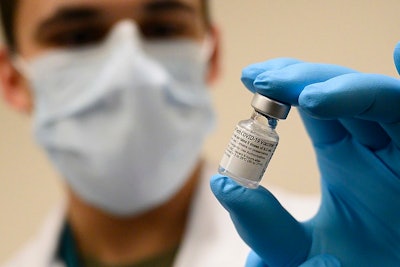 Army Spc. Angel Laureano holds a vial of the COVID-19 vaccine, Walter Reed National Military Medical Center, Bethesda, Md., Dec. 14, 2020.
Army Spc. Angel Laureano holds a vial of the COVID-19 vaccine, Walter Reed National Military Medical Center, Bethesda, Md., Dec. 14, 2020.
By all accounts, the biggest storyline of 2021 is the return to campus in the fall semester and an attempt to reclaim a sense of normalcy. In some ways, this clamoring for normal is disappointing to those who were hopeful for meaningful and much needed change in the sector. Many populations saw the gaps in access and enrollment widen during 2020. Dr. Lynn Pasquerella, president of the Association of American Colleges and Universities, notes “a growing economic and racial segregation in higher ed,” with Black and Latino males being particularly hard hit.
But Pasquerella also sees this as an exciting time for institutions to continue to build on the lessons from the past year and “reimagine higher ed in a way that goes beyond performative allyship and demonstrates that we’re truly committed to racial equity” for faculty, staff and students.
On equal footing?
On January 6, 2021, insurrectionists stormed the U.S. Capitol as supporters of former President Donald Trump protested Trump’s loss in the November 2020 election. Scholars from across the nation drew a sharp contrast to how the White protestors who stormed the Capitol were treated as compared to Black Lives Matter protestors who continued to protest the police killings of Breonna Taylor, George Floyd and others, some saying that the divergence in treatment was an illustration of White privilege.
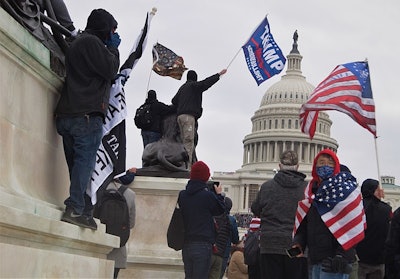 Photo by Tyler Merbler via Wikimedia
Photo by Tyler Merbler via Wikimedia
But the debates have done more than just ignite passions in higher ed. They’ve bled into an unprecedented interference by public university boards and state governing boards into issues of tenure and promotion on campus, leading to the rejection of tenure recommendations for scholars whose research centers around issues of race.
“This is something that hasn’t happened since McCarthyism in the U.S., and I think it’s a trend we really need to be concerned about,” says Pasquerella. “If we’re going to continue to educate for democracy [there has to be] an unfettered transmission of the truth and the exchange of free ideas.”
Tenure battles
The fight over tenure led to several high-profile departures for Black faculty members at prestigious PWIs this year.
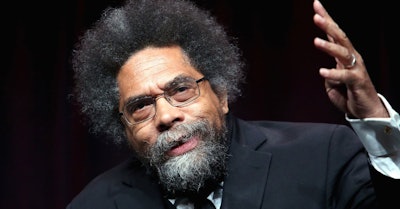 Dr. Cornel West
Dr. Cornel West
In May, Dr. Paul Harris left the University of Virginia for Pennsylvania State University following a struggle to reverse a tenure denial that ultimately resulted in Harris being awarded tenure after all at UVA. Harris’ departure sparked a national conversation around racial biases in the tenure and promotion process at higher ed institutions and also sparked outcry from scholars across the country chiming in on what seemed to be an arbitrary dismissal of the legitimacy of Harris’ research and publications.
“We began to take an inventory on the toll that it took on us,” Harris said of the appeals process that lasted for months and drew national headlines. “It was about our health — physically, psychologically, emotionally and spiritually.”
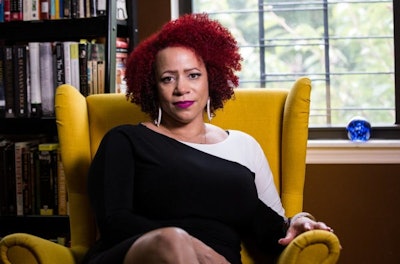 Nikole Hannah-JonesMacArthur Foundation
Nikole Hannah-JonesMacArthur Foundation
“Why would I want to teach at a university whose top leadership chose to remain silent, to refuse transparency, to fail to publicly advocate that I be treated like every other Knight Chair before me? Or for a university overseen by a board that would so callously put politics over what is best for the university that we all love? These times demand courage, and those who have held the most power in this situation have exhibited the least of it,” said Hannah-Jones in a statement at the time.
“The Board of Trustees wanted to send a message to me and others like me, and it did. … Since the second grade when I began being bused into White schools, I have been fighting against people who did not think a Black girl like me belonged, people who tried to control what I did, how I spoke, how I looked, the work I produced.”
Historic investment in HBCUs
While higher ed overall — and particularly two-year institutions — saw a decline in enrollment, many historically Black colleges and universities (HBCUs) reported record enrollments and more than 50% increases in the number of applications they received. In fact, according to a report from The College Board, Black students are the only group whose enrollment in four-year institutions increased in 2021, and HBCUs were the beneficiaries of much of this spike.
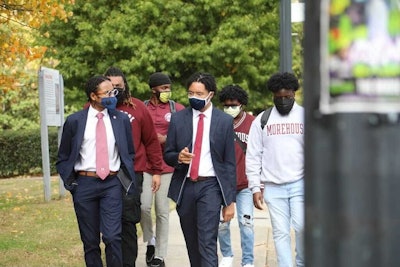 Morehouse College
Morehouse College
In addition to record enrollments, 2021 was also a record year for HBCU philanthropy as well. Notably, philanthropist MacKenzie Scott gave millions in unrestricted gifts to 22 historically Black institutions ranging from $4 million for Voorhees College in South Carolina to $50 million for Prairie View A&M University in Texas. Scott said she hoped the gifts would help address “long-term systemic inequities that have been deepened by the [COVID-19] crisis.” She noted those inequities include “education for historically marginalized and underserved people.”
“HBCUs face serious challenges with COVID — not just the obvious challenges of a pandemic that has disproportionately harmed Black people and other people of color — but also with the threat of … fundamental cultural experiences,” says deGregory, who cites the return of in-person homecoming for some institutions as being another key moment of the year that cannot be understated, in her opinion. Homecoming for many HBCU alumni, she says, is akin to people being able to return home and kiss their family members for the first time since the start of the pandemic, and it is a cultural occurrence that is critical to the HBCU experience.
Biden inauguration
The election and subsequent inauguration of President Joseph Biden has, for many, restored a sense of hope that was the signature of the Obama administration when Biden was serving as second-in-command. James Kvaal — a key player in 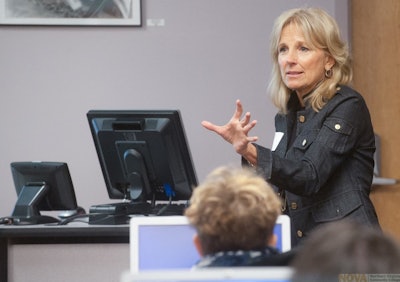 Northern Virginia Community College
Northern Virginia Community College
While HBCU alumni are hopeful that having an alumna in the second-highest position in the land will prove to be a great benefit for HBCUs, which, even amid a record-breaking year, are still grossly and chronically underfunded, community college leaders are equally hopeful. Dr. Jill Biden’s position as first lady and her faculty position at Northern Virginia Community College give the sector a much-needed advocate as they look to remedy some of the negative impacts of the pandemic on the sector.
Community colleges saw a steep decrease in enrollment this year, which is the opposite of what usually happens when the nation is experiencing an economic downturn.
“We didn’t get America’s promise in the build back better movement, but … community colleges have been so prevalent in the conversation about solutions for what’s going on in the nation right now,” says Dr. Martha Parham, senior vice president for public relations at the American Association of Community Colleges. Parham adds that she is “really proud” to see community colleges included in the conversations about solutions for problems facing the nation.
The name, image, likeness debate
Intercollegiate athletics were not exempt from the challenges of the pandemic, as conferences scrambled to find ways to 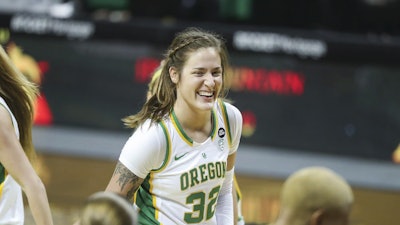 Sedona Prince, University of Oregon basketball player and social media activist, has been dubbed "the poster child of NIL."
Sedona Prince, University of Oregon basketball player and social media activist, has been dubbed "the poster child of NIL."
After a lengthy court battle, athletes were awarded the right to profit off of their names, images and likenesses — many say that this decision could help promote greater equity between the haves and have-nots in higher ed.
“I think what we’ll see the real benefit and the real impact of this legislation will be is not on the gymnast that has five million followers and signs with the highest-level agency. It’s really on those athletes that have two to three-thousand followers, and can help drive some engagement in their community,” says Dr. Thilo Kunkel, an associate professor within the School of Sport, Tourism and Hospitality Management at Temple University and director of the Sport Industry Research Center. “They’ll make a few thousand dollars and those few thousand can really go a long way and help those athletes.”
Hrabowski announces retirement
Dr. Freeman Hrabowski, president of the University of Maryland, Baltimore County, boasts one of the longest careers in  Dr. Freeman Hrabowski holds up his medal at Diverse's Dr. John Hope Franklin Award ceremony.
Dr. Freeman Hrabowski holds up his medal at Diverse's Dr. John Hope Franklin Award ceremony.
Now feeling like his purpose has been fulfilled and the university is in a good place to continue on without him, the higher ed giant is stepping down into retirement at the end of this academic year.
“We have shown the country that we are a model of inclusive excellence,” he said at the time of his announcement. Hrabowski is also the 2021 recipient of Diverse’s Dr. John Hope Franklin Award, in recognition of his accomplishments and contributions to the higher ed landscape.
In memoriam
The world of higher education was affected by the passing of a number of individuals who have left a lasting legacy.
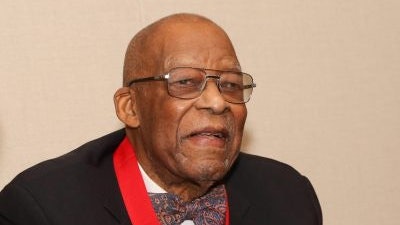 Dr. Samuel L. Myers Sr.
Dr. Samuel L. Myers Sr.
Robert Parris Moses, a former student leader in the Student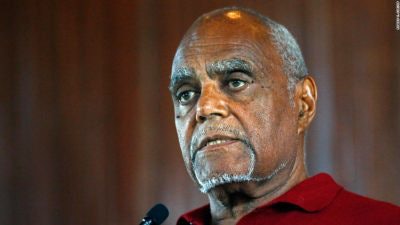 Robert Parris Moses
Robert Parris Moses
Dr. Albert J. Raboteau, the renowned scholar of African and African American religion, passed away in September at the age of 78. Raboteau retired from Princeton University in 2013 as the Henry W. Putnam Professor of Religion Emeritus, after spending 30 years on the faculty there. Prior to his time at Princeton, he served on the faculties at Xavier University in New Orleans, Yale University and the University of California at Berkeley. Dr. Cornel West called him “the Godfather of Afro-American Religious studies and the North Star of deep Christian political sensibilities.”
Dr. Charles W. Mills, the distinguished professor of philosophy at the Graduate Center of the City University of New York (CUNY), died in September at the age of 70. Mills is perhaps best remembered for his groundbreaking work in The Racial Contract and his various attempts to rehabilitate the American liberal tradition. Dr. Tommy J. Curry, a professor of philosophy at the University of Edinburgh, remembers Mills as someone who “invested his intellectual energy into the people and projects that gave legitimacy to Black philosophy and race theory.”
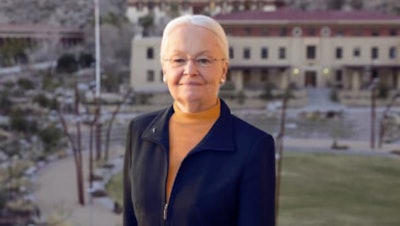 Dr. Diana Natalicio
Dr. Diana Natalicio
General Colin Powell — first Black chairman of the Joint Chiefs of Staff and later U.S. secretary of state and a huge champion for higher education — died at the age of 84 on Oct. 18 from complications related to COVID-19. He also suffered from multiple myeloma, a blood cancer. The Colin Powell School for Civic and Global Leadership at City College of New York was named for Powell, who never missed a graduation and shook the hand of every student who walked across the stage. “He would encourage them to work hard and pursue their dreams. He always reminded them — and all of us — that ‘they’re just like I was’ some 65 years ago now,” said the school’s dean, Dr. Andrew Rich.
Walter Hudson contributed to this article.
This article originally appeared in the December 9, 2021 edition of Diverse. Read it here.















